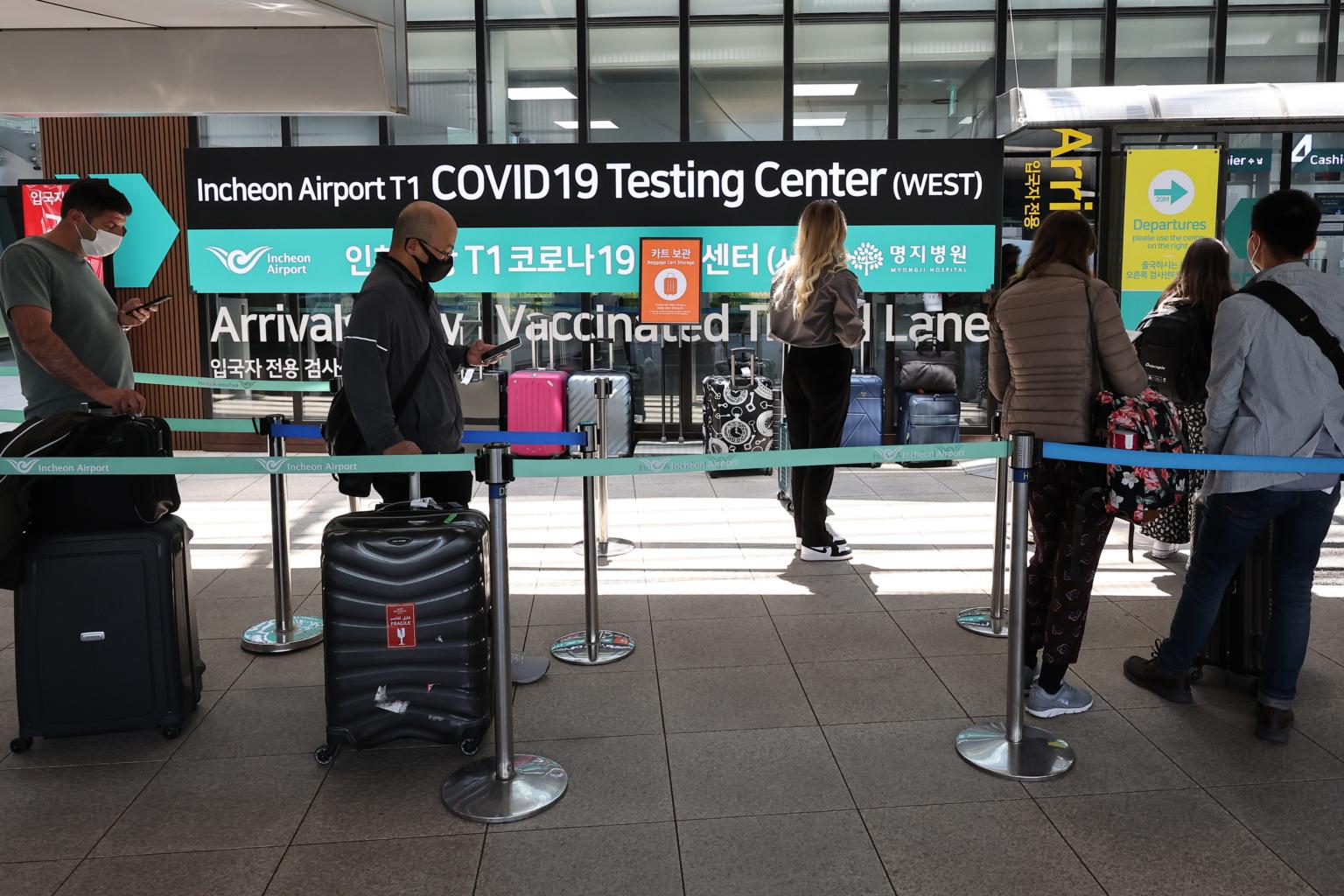Airport restrictions, quarantine rules for unvaccinated eased as South Korea opens up
Sign up now: Get insights on Asia's fast-moving developments

Incheon Airport is resuming 24-hour operations and tourists do not have to submit details of their vaccination.
PHOTO: EPA-EFE
SEOUL - South Korea has eased airport restrictions and removed mandatory quarantine for unvaccinated travellers, as part of efforts to reopen borders, now that its domestic Covid-19 situation has stabilised.
From Wednesday (June 8), foreign visitors who are not vaccinated no longer need to serve seven days of quarantine.
This also means that tourists do not have to key in details of their vaccination into the Q-Code (Quarantine Covid-19 Defence) system, which captures information about their flights, travel records and results of their pre-departure tests before they enter the country.
The Central Disaster Management Headquarters said last week that the decision was made after considering how the pandemic has stabilised within the country and overseas and how demand for air travel has increased.
South Korea also lifted pandemic regulations imposed at Incheon International Airport, its main point of entry, on Wednesday.
The airport will now run 24 hours instead of closing from 8pm to 5am, and the number of flights allowed to land has been increased from 20 an hour to pre-pandemic levels of 40 an hour.
The increase in flights is aimed at bringing ticket prices down and boosting demand ahead of South Korea's travel peak in the summer months of July and August.
But industry experts said it will take some time for tourism to rebound to pre-Covid-19 levels, as flight prices may remain high because of growing fuel charges, and not all airlines will be able to increase flights immediately.
In addition, the South Korean government still requires tourists to test negative before departure and upon arrival - which adds to the cost of travelling.
Travellers are required to take a polymerase chain reaction (PCR) test within two days of departure, or an antigen rapid test (ART) at a hospital or clinic within a day of departure.
After arriving in Seoul, they have to take a PCR test at the airport or at an approved medical institution within three days. They are allowed to carry on with activities before and after taking the test, but must be quarantined for seven days if they test positive.
Despite the restrictions, there has already been an increase in travel since early this year.
Incheon Airport handled 930,000 passengers last month - up from 357,000 in January.
Industry observers are hopeful that the airport can handle four million passengers a month by the end of the year, or 70 per cent of pre-pandemic numbers.
Before travelling to South Korea, all travellers must apply for the K-ETA (Korea Electronic Travel Authorisation) that allows visa-free entry. It is valid for two years and can be used multiple times.
South Korea recognises all Covid-19 vaccines approved by the World Health Organisation, such as Pfizer, Moderna, Janssen, Covishield, Sinopharm and Sinovec.


